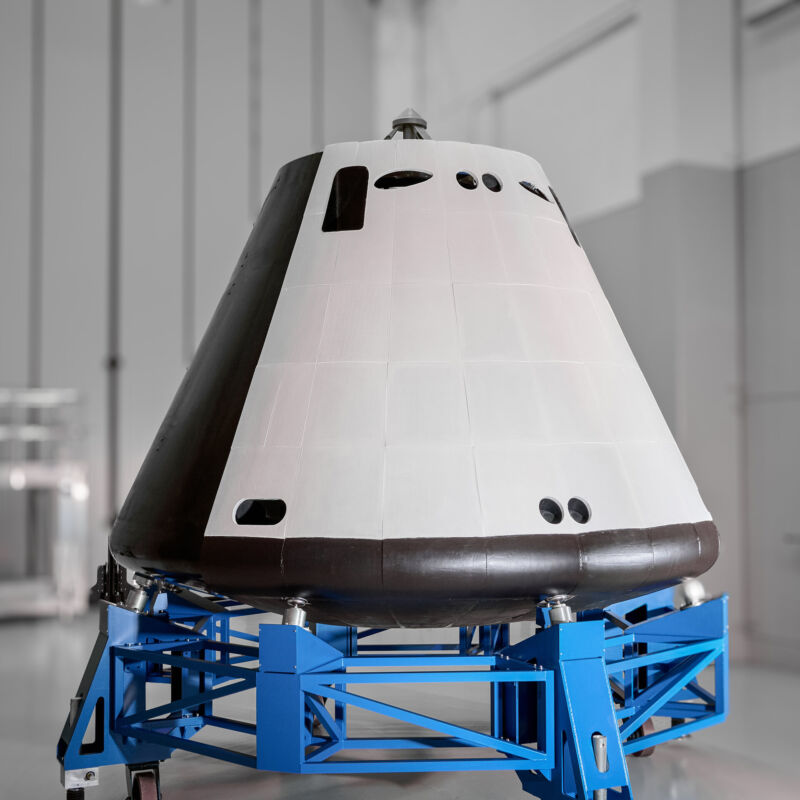
Thales Alecia Space
The European Space Agency has awarded initial contracts to a Germany-based startup and one of the continent’s established aerospace companies to develop spacecraft to transport cargo to and from space stations in low Earth orbit.
ESA announced the two 25 million euro ($27 million) contracts on May 22. The Exploration Company, based in France and Germany, and Italy’s Thales Alenia Space beat out four other companies in the competition for ESA funding through the LEO Transport Return Service program.
These contracts will last for two years, until June 2026. In this first phase of the program, The Exploration Company and Thales Alenia Space will refine their concepts, mature technologies and focus on the requirements for their launch vehicles. loads. ESA plans to award contracts for the second phase of the LEO Cargo Return Service program in 2026, with a view to a demonstration round-trip flight to the International Space Station (ISS) in 2028.
The exploration company, founded in 2021, says its Nyx cargo carrier could fly to the space station as early as 2027. Thales Alenia Space’s demonstration mission is targeted by the end of 2028, the company said in a statement. The Exploration Company plans to fly a subscale reentry vehicle on the maiden flight of the European Ariane 6 rocket in July. Thales Alenia Space has not built a reentry vehicle, but has produced pressure shells for several modules on the ISS.
ESA requirements stipulate that European commercial cargo vehicles must be able to deliver 4 metric tons of equipment into low Earth orbit and return 2 metric tons to Earth.
ESA initially wanted to select three companies to continue with the European cargo program. Samantha Cristoforetti, an ESA astronaut leading the procurement effort, said only two winners “presented a combination of work plan and funding scheme that were appropriate for the purposes of this call.”
Cristoforetti told Ars that ESA received “six valid proposals” from European industry. It declined to identify the other contenders, but two of the proposals were believed to come from ArianeGroup and Rocket Factory Augsburg.
A partial commitment
Representatives from ESA’s 22 member states met in Seville, Spain, last November to decide on some priorities for the space agency. The meeting produced several key decisions. Member states agreed to adopt a more commercial model for buying launch services from European rocket startups in the future, although in the near term, ESA remains all-in on the long-delayed Ariane 6 and Vega C rockets.
European governments also signed off on the first phase of the LEO Transport Return Service, but the initial €25 million contracts signed with The Exploration Company and Thales Alenia Space will only go so far. At the next high-level budget meeting at the end of next year, ESA will ask member countries for the rest of the funds needed to carry out the program through demonstration flights to the ISS.
ESA works in budget cycles that usually last three years. That helps ensure steady funding for the agency’s programs, but it can hinder the kind of fast-paced change emblematic of startup culture. However, Josef Aschbacher, ESA’s director general, won approval from his member states in November to use some of ESA’s funds to partner with industry on commercial cargo vehicles.
“We want to be on the space station around 28,” Aschbacher said at a May 23 press conference. “We now have to evaluate the technical proposals and capabilities in detail, but this is extremely fast and is actually faster than some of our overseas competitors have managed to build such a vehicle.”
Aschbacher seems serious about making ESA more agile. However, the agency’s budget and direction are determined by European government ministers through the prism of the area’s internal politics.
